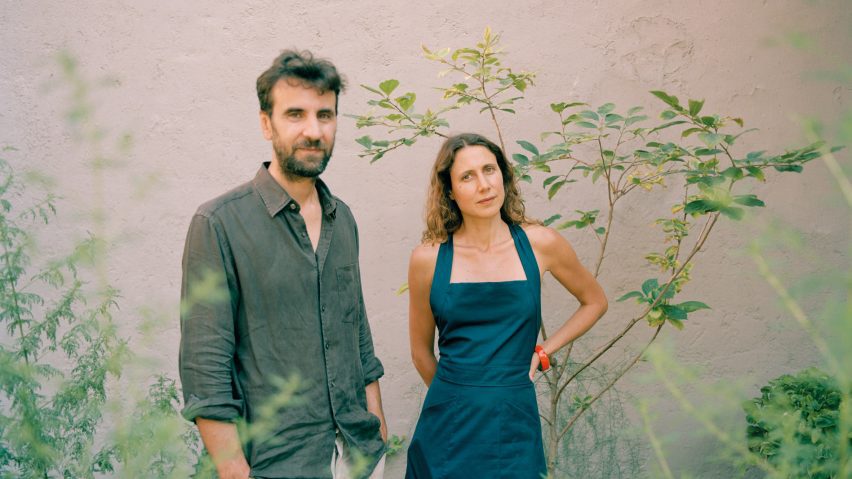
"We dodge the bullet of gentrification by moving around" say Alcova founders
Milan design week exhibition Alcova takes place in a new location every year. In an exclusive interview, founders Valentina Ciuffi and Joseph Grima say this nomadic approach is key to supporting radical young design talent.
According to Ciuffi and Grima, regularly staging an exhibition in the same place can lead to gentrification, which drives up prices and makes it harder for emerging designers to participate.
"By moving around frequently, we actually dodge the bullet of gentrification," said Grima.
"We add a certain amount of visibility to certain neighbourhoods for a brief period of time, but it's too brief for it to be of significance to their future trajectory."
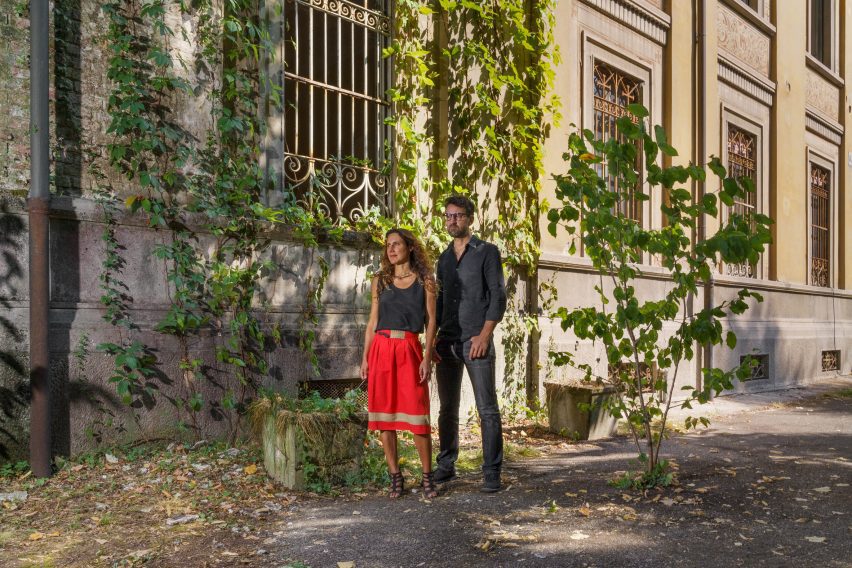
The fifth edition of flagship design show Alcova is set to take place next week, in a former abattoir in Porta Vittoria.
Previous editions were hosted in other disused buildings, including the former Fabbrica Sassetti cashmere mill in Isola and an ex-military hospital in Baggio.
The strategy, Ciuffi and Grima explain, is to create a "designed experience" that is different every time and doesn't impact negatively on local economics.
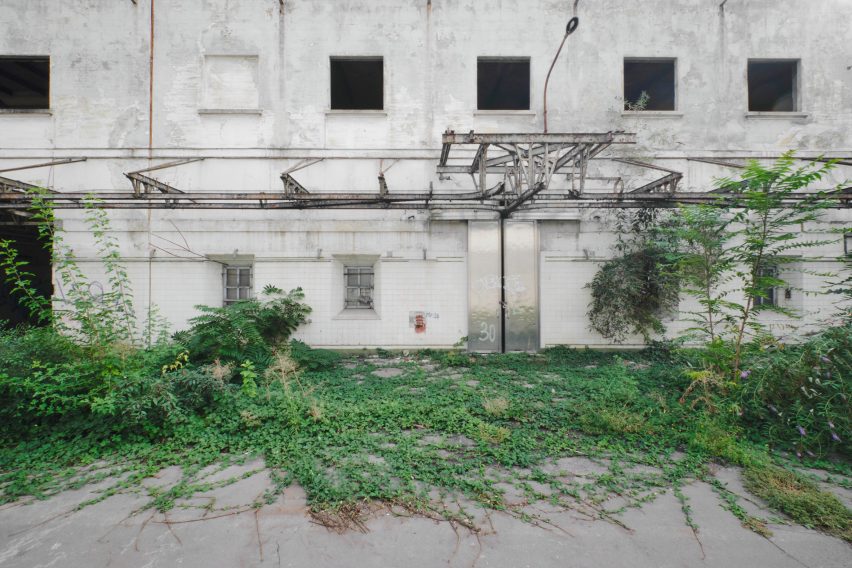
"When you become stationary, you get all sorts of weird hangers-on accumulating around you," Grima told Dezeen.
"We don't want to have an adverse impact on a neighbourhood by allowing speculative other projects to capitalise on the presence of this cool, energetic, young design platform and distort the market base."
A platform for future-facing design
Ciuffi and Grima first launched Alcova in 2018, with a vision to present work by designers that didn't fit the mould of the Salone del Mobile furniture fair or any of the pre-existing Fuorisalone group exhibitions.
The previous year had seen the demise of the Ventura Lambrate design district – once a thriving platform for emerging designers – as a result of rising rents in the area.
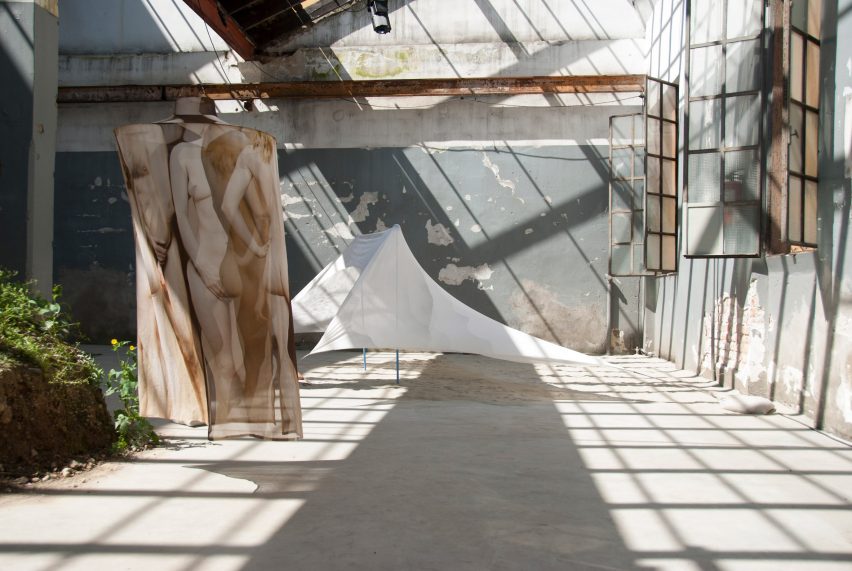
"What was really missing in the city at that point was a platform for designers who represented the direction in which design was more broadly going," said Grima.
The inaugural venue was the former G Cova & Co panettone factory in Nolo, a building that was missing part of its roof and overun with plants.
Here, Ciuffi and Grima presented the work of 26 participants, including Buro Belén's textile-based sunscreens alternatives, a maximalist cabinet by Kostas Lambridis and Lara Bohinc's celestially inspired furniture.
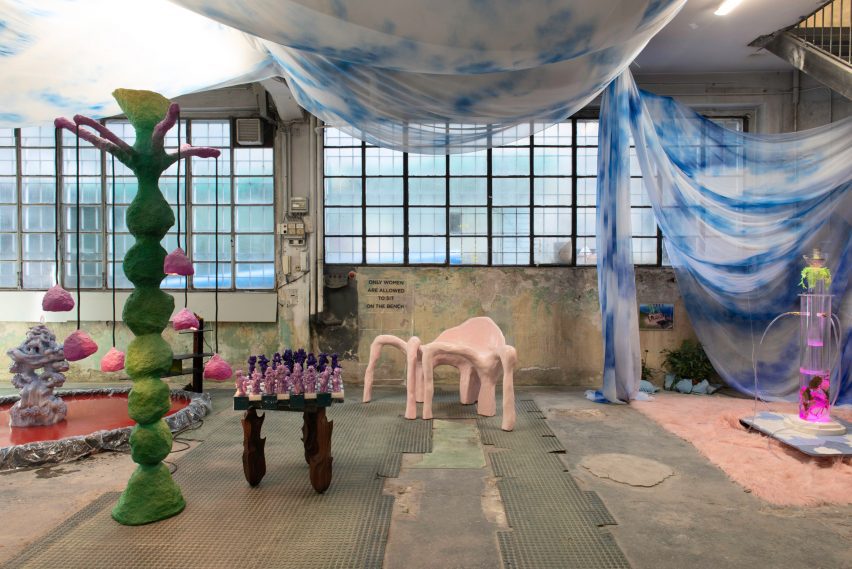
Since then Alcova has grown in scale and ambition. The 2022 show was the biggest yet, encompassing 20 hectares of exhibition space and attended by 60,000 visitors over six days.
Alcova was also active during the pandemic, when it teamed up with Dezeen's Virtual Design Festival to spotlight the work of eight innovative designers and studios.
"Some people think that Alcova has become huge and more commercial," said Ciuffi.
"It's true that we are getting bigger – a project that is successful needs to grow, or it dies. But we haven't changed our mode [of operation]. At least 70 per cent of our exhibitors are still very young."
"Curating from the stomach"
Ciuffi and Grima say they only select participants they believe are shifting the paradigm of design, rather than those that reflect their personal tastes.
Both are able to draw on wide-ranging experience in the design industry.
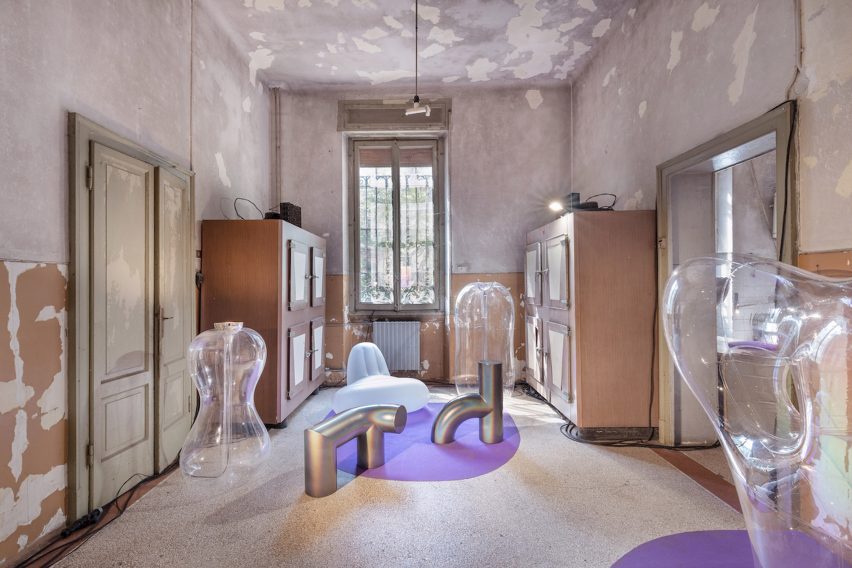
Grima is an architect, curator and educator. He is the founder of architecture and research studio Space Caviar, creative director at Design Academy Eindhoven and a former editor of Domus magazine.
Ciuffi was an editor at Italian design magazine Abitare for several years before launching her creative consultancy, Studio Vedèt, which works across curation, creative direction, graphic design and web design.
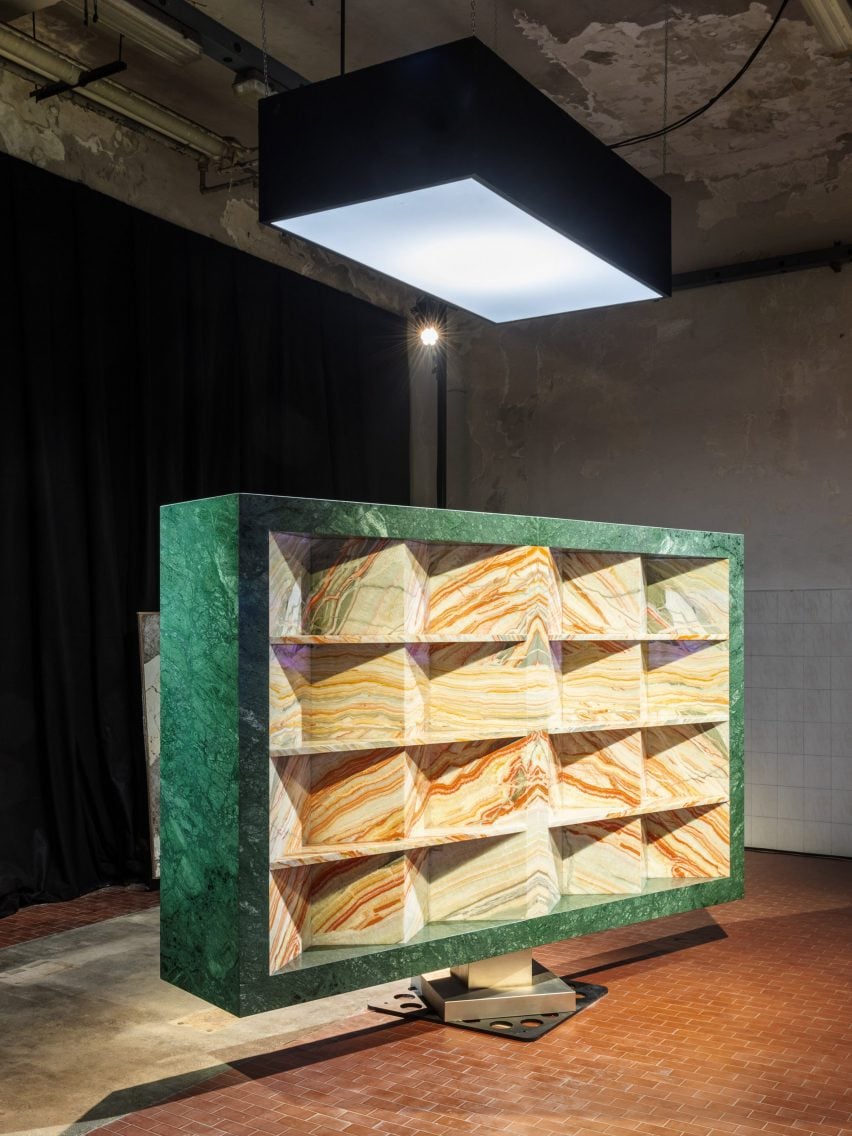
The pair describe their selection process as "curating from the stomach rather than from the brain".
"We allow very different types of research and language to be part of Alcova," Ciuffi explained.
This year's edition is set to feature over 70 projects, including a material-focused exhibition by research lab Atelier Luma and a large-scale installation by Finnish platform Habitarematerials.
Young designers exhibiting include Kiki Goti, Monstrum Studio, Sangmin Oh and WangyichuWangyichu.
Alcova is "a kind of New Babylon"
Temporary cafes and bars are a regular fixture of Alcova, providing space for pop-up events, talks and gatherings. Previous examples include the Lambert & Fils-designed Caffè Populaire in 2019.
This year there will be a food court and two bars, Materials Bar and Bar Galleria, both designed by Space Caviar.
Grima said the aim is to create the feeling of a nomadic city in the spirit of radical 1960s proposals such Archigram's Plug-In City or Constant Nieuwenhuys' New Babylon.
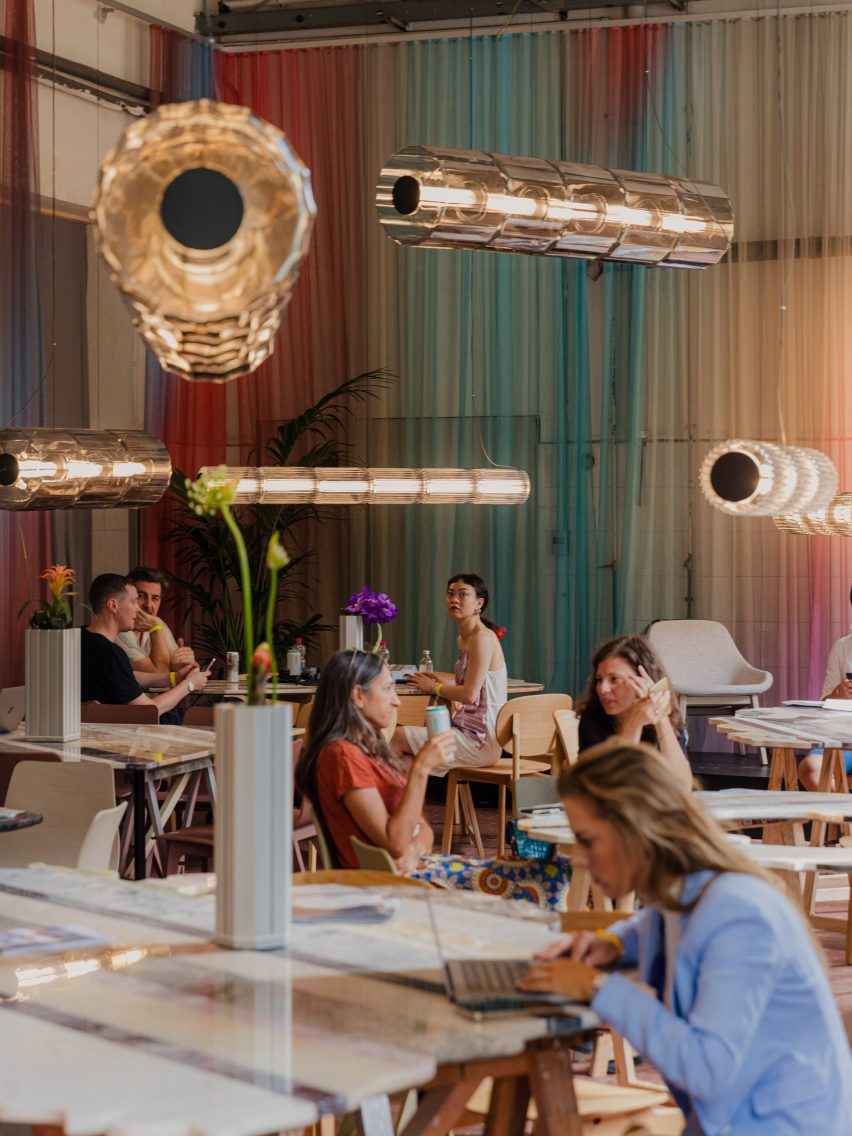
"One of the inspirations of the whole project was this image of a city on the move," said Grima.
"In a way, I think that's what Alcova is – it's a kind of New Babylon that activates once a year, a mobile nomadic tribe that move from one place to the other."
Ciuffi and Grima believe their nomadic approach will allow Alcova to remain affordable for emerging talents, helping it to stay relevant in the future.
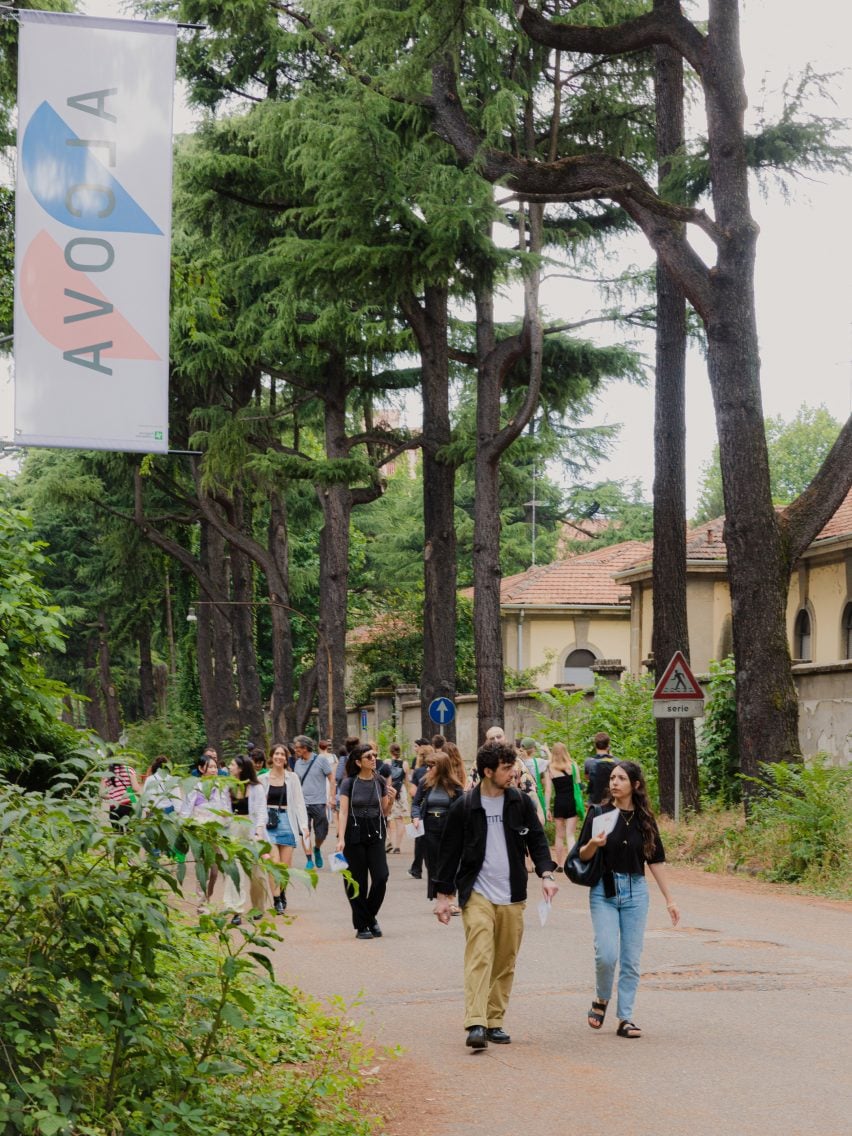
A key advantage is that it allows them to take advantage of limited-time rental properties like the abattoir, a site that is set to be soon redeveloped.
"Alcova has succeeded in doing what others have tried before, but only achieved episodically," said Grima.
"It has shown there is huge potential to present in the Fuorisalone without sticking to any specific category or limiting yourself to any particular definition of design."
Alcova 2023 takes place from 17 to 23 April 2023 at Via Molise 62, 20137 Milan, Italy. See our Milan design week 2023 guide on Dezeen Events Guide for information about the many other exhibitions, installations and talks taking place throughout the week.